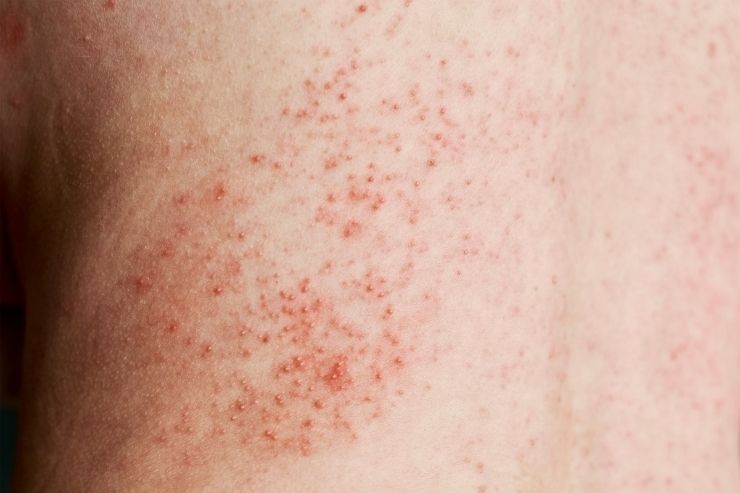
Rashes are a common dermatological issue characterized by changes in skin color, texture, or appearance. They can appear as red, itchy patches, bumps, or sores and may affect any part of the body. Rashes can be caused by a variety of factors and can range from mild to severe. At PARI HOSPITAL, our dermatology experts are dedicated to diagnosing and treating rashes, helping you find relief and improve your skin health.
What Causes Rashes?
Rashes can result from numerous causes, including:
Allergic Reactions: Allergies to foods, medications, or environmental factors (like pollen or pet dander) can cause rashes. Contact dermatitis, triggered by direct contact with allergens or irritants, is a common example.
Infections: Bacterial, viral, or fungal infections can lead to rashes. Examples include impetigo (bacterial), chickenpox (viral), and ringworm (fungal).
Autoimmune Conditions: Conditions like psoriasis or lupus can cause rashes as part of their broader symptoms.
Skin Conditions: Chronic skin conditions such as eczema (atopic dermatitis) and rosacea often present with rashes as a primary symptom.
Heat and Sweat: Heat rash, also known as prickly heat, occurs when sweat ducts become blocked, causing red, itchy bumps on the skin.
Drug Reactions: Some medications can cause rashes as a side effect or allergic reaction.
Hygiene and Irritants: Poor hygiene, harsh soaps, or exposure to chemicals and irritants can lead to rashes.
Symptoms of Rashes
Rashes vary widely in appearance and severity but may include:
Redness or Discoloration: Rashes often appear as red or inflamed patches on the skin.
Itching or Burning: Many rashes are accompanied by itching or a burning sensation.
Bumps or Blisters: Some rashes develop as raised bumps, blisters, or sores.
Scaling or Peeling: Rashes associated with conditions like psoriasis or eczema may cause the skin to scale or peel.
Dryness or Crusting: Rashes can lead to dry, cracked skin or the formation of crusts.
Pain or Sensitivity: In some cases, rashes can be painful or sensitive to touch.
Treatment Options for Rashes
The treatment for a rash depends on its cause. At PARI HOSPITAL, our dermatology team offers a range of options to address rashes effectively:
Topical Medications: Corticosteroid creams, antihistamines, and other topical treatments can reduce inflammation, itching, and discomfort.
Antibiotics or Antifungals: For rashes caused by infections, appropriate antibiotics or antifungal medications may be prescribed.
Moisturizers: Emollients and moisturizers can help soothe dry, irritated skin and prevent further dryness.
Cold Compresses: Applying a cold, damp cloth to the affected area can alleviate itching and reduce inflammation.
Avoidance of Triggers: Identifying and avoiding allergens, irritants, or known triggers is crucial in managing rashes, especially in cases of contact dermatitis or allergic reactions.
Medications for Underlying Conditions: If a rash is related to a chronic condition such as eczema or psoriasis, managing the underlying condition with appropriate medications is essential.
Lifestyle Modifications: For rashes caused by heat or sweat, keeping the skin cool and dry can prevent further irritation.